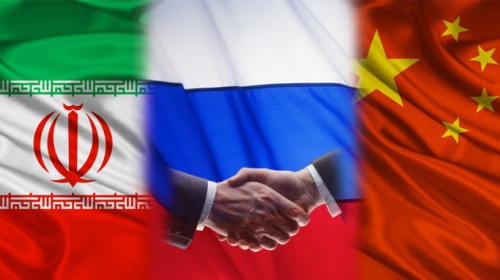
Une coalition sino-russo-iranienne opposée à l’Otan débute-t-elle à Moscou?
Ex: http://www.arretsurinfo.ch
La Conférence de Moscou sur la sécurité internationale, en avril, a été une occasion de faire savoir aux Etats-Unis et à l’OTAN que d’autres puissances mondiales ne les laisseront pas faire comme ils l’entendent.
Le thème portait sur les efforts communs de la Chine, de l’Inde, de la Russie et de l’Iran contre l’expansion de l’OTAN, renforcés par des projets de pourparlers militaires tripartites entre Pékin, Moscou et Téhéran.
Des ministres de la Défense et des responsables militaires venus du monde entier se sont réunis le 16 avril au Radisson Royal ou Hotel Ukraina, l’une des plus belles réalisations de l’architecture soviétique à Moscou, connue comme l’une des Sept sœurs construites à l’époque de Joseph Staline.
L’événement de deux jours, organisé par le ministère russe de la Défense était la quatrième édition de la Conférence annuelle de Moscou sur la sécurité internationale (CMSI/MCIS).
Des civils et des militaires de plus de soixante-dix pays, y compris des membres de l’OTAN, y ont assisté. A part la Grèce, toutefois, les ministres de la Défense des pays de l’OTAN n’ont pas participé à la conférence.
Contrairement à l’année dernière, les organisateurs de la CMSI n’ont pas transmis d’invitation à l’Ukraine pour la conférence de 2015. Selon le vice-ministre russe de la Défense Anatoly Antonov, «à ce niveau d’antagonisme brutal dans l’information par rapport à la crise dans le sud-est de l’Ukraine, nous avons décidé de ne pas envenimer la situation à la conférence et, à ce stade, nous avons pris la décision de ne pas inviter nos collègues ukrainiens à l’événement.»
A titre personnel, le sujet m’intéresse, j’ai suivi ce genre de conférences pendant des années, parce qu’il en émane souvent des déclarations importantes sur les politiques étrangères et de sécurité. Cette année, j’étais désireux d’assister à l’ouverture de cette conférence particulière sur la sécurité. A part le fait qu’elle avait lieu à un moment où le paysage géopolitique du globe est en train de changer rapidement, depuis que l’ambassade russe au Canada m’avait demandé en 2014 si j’étais intéressé à assister à la CMSI IV, j’étais curieux de voir ce que cette conférence produirait.
Le reste du monde parle: à l’écoute des problèmes de sécurité non euro-atlantiques
La Conférence de Moscou est l’équivalent russe de la Conférence de Munich sur la sécurité qui se tient à l’hôtel Bayerischer Hof en Allemagne. Il y a cependant des différences essentielles entre les deux événements.
Alors que la Conférence sur la sécurité de Munich est organisée autour de la sécurité euro-atlantique et considère la sécurité globale du point de vue atlantiste de l’OTAN, la CMSI représente une perspective mondiale beaucoup plus large et diversifiée. Elle représente les problèmes de sécurité du reste du monde non euro-atlantique, en particulier le Moyen-Orient et l’Asie-Pacifique. Mais qui vont de l’Argentine, de l’Inde et du Vietnam à l’Egypte et à l’Afrique du Sud. La conférence a réuni à l’hôtel Ukraina tout un éventail de grands et petits joueurs à la table, dont les voix et les intérêts en matière de sécurité, d’une manière ou d’une autre, sont par ailleurs sapés et ignorés à Munich par les dirigeants de l’OTAN et des Etats-Unis.
Le ministre russe de la Défense Sergey Shoigu, qui a un rang d’officier équivalent à celui d’un général quatre étoiles dans la plupart des pays de l’OTAN, a ouvert la conférence. Assis près de Shoigu, le ministre des Affaires étrangères Sergey Lavrov a aussi pris la parole, et d’autres responsables de haut rang. Tous ont parlé du bellicisme tous azimuts de Washington, qui a recouru aux révolutions de couleur, comme l’Euro-Maïdan à Kiev et la Révolution des roses en Géorgie pour obtenir un changement de régime. Shoigu a cité le Venezuela et la région administrative spéciale chinoise de Hong Kong comme exemples de révolutions de couleur qui ont échoué.
Le ministre des Affaires étrangères Lavrov a rappelé que les possibilités d’un dangereux conflit mondial allaient croissant en raison de l’absence de préoccupation, de la part des Etats-Unis et de l’OTAN, pour la sécurité des autres et l’absence de dialogue constructif. Dans son argumentation, Lavrov a cité le président américain Franklin Roosevelt, qui a dit:
«Il n’y a pas de juste milieu ici. Nous aurons à prendre la responsabilité de la collaboration mondiale, ou nous aurons à porter la responsabilité d’un autre conflit mondial.» «Je crois qu’ils ont formulé l’une des principales leçons du conflit mondial le plus dévastateur de l’Histoire: il est seulement possible de relever les défis communs et de préserver la paix par des efforts collectifs, basés sur le respect des intérêts légitimes de tous les partenaires » , a-t-il expliqué à propos de ce que les dirigeants mondiaux avaient appris de la Seconde Guerre mondiale.
Shoigu a eu plus de dix réunions bilatérales avec les différents ministres et responsables de la Défense qui sont venus à Moscou pour la CMSI. Lors d’une réunion avec le ministre serbe de la Défense Bratislav Gasic, Shoigu a dit que Moscou considère Belgrade comme un partenaire fiable en termes de coopération militaire.

De g. à dr.: Sergei Lavrov, ministre des Affaires étrangères, Sergei Shoigu, ministre de la Défense, Nikolai Patrushev, secrétaire au Conseil de sécurité et Valery Gerasimov, chef de l’état-major général, participant à la 4e Conférence de Moscou sur la sécurité (RIA Novosti / Iliya Pitalev)
Une coalition sino-russo-iranienne: le cauchemar de Washington
Le mythe que la Russie est isolée sur le plan international a de nouveau été démoli pendant la conférence, qui a aussi débouché sur quelques annonces importantes.
Le ministre kazakh de la Défense Imangali Tasmagambetov et Shoigu ont annoncé que la mise en œuvre d’un système de défense aérienne commun entre le Kazakhstan et la Russie a commencé. Cela n’indique pas seulement l’intégration de l’espace aérien de l’Organisation du traité de sécurité collective, cela définit aussi une tendance. Cela a été le prélude à d’autres annonces contre le bouclier de défense antimissile de l’OTAN.
La déclaration la plus vigoureuse est venue du ministre iranien de la Défense Hossein Dehghan. Le brigadier-général Dehghan a dit que l’Iran voulait que la Chine, l’Inde et la Russie s’unissent pour s’opposer conjointement à l’expansion à l’est de l’OTAN et à la menace à leur sécurité collective que constitue le projet de bouclier antimissile de l’Alliance.
Lors d’une réunion avec le ministre chinois des Affaires étrangères Chang Wanquan, Shoigu a souligné que les liens militaires de Moscou avec Beijing étaient sa «priorité absolue». Dans une autre rencontre bilatérale, les gros bonnets de la défense iraniens et russes ont confirmé que leur coopération sera une des pierres angulaires d’un nouvel ordre multipolaire et que Moscou et Téhéran étaient en harmonie quant à leur approche stratégique des Etats-Unis.
Après la rencontre de Hossein Dehghan et la délégation iranienne avec leurs homologues russes, il a été annoncé qu’un sommet tripartite se tiendrait entre Beijing, Moscou et Téhéran. L’idée a été avalisée ensuite par la délégation chinoise.
Le contexte géopolitique change et il n’est pas favorable aux intérêts états-uniens. Non seulement l’Union économique eurasienne a été formée par l’Arménie, la Biélorussie, le Kazakhstan et la Russie au cœur post-soviétique de l’Eurasie, mais Pékin, Moscou et Téhéran – la Triple entente eurasienne – sont entrés dans un long processus de rapprochement politique, stratégique, économique, diplomatique et militaire.
L’harmonie et l’intégration eurasiennes contestent la position des Etats-Unis sur leur perchoir occidental et leur statut de tête de pont en Europe, et même incitent les alliés des Etats-Unis à agir de manière plus indépendante. C’est l’un des thèmes centraux examinés dans mon livre The Globalization of NATO [La mondialisation de l’OTAN].
L’ancien grand ponte états-unien de la sécurité Zbigniew Brzezinski a mis en garde les élites américaines contre la formation d’une coalition eurasienne «qui pourrait éventuellement chercher à contester la primauté de l’Amérique». Selon Brzezinski, une telle alliance eurasienne pourrait naître d’une «coalition sino-russo-iranienne» avec Beijing pour centre.
«Pour les stratèges chinois, face à la coalition trilatérale de l’Amérique, de l’Europe et du Japon, la riposte géopolitique la plus efficace pourrait bien être de tenter et de façonner une triple alliance qui leur soit propre, liant la Chine à l’Iran dans la région golfe Persique/Moyen-Orient et avec la Russie dans la région de l’ancienne Union soviétique», avertit Brzezinski.
«Dans l’évaluation des futures options de la Chine, il faut aussi considérer la possibilité qu’une Chine florissante économiquement et confiante en elle politiquement – mais qui se sent exclue du système mondial et qui décide de devenir à la fois l’avocat et le leader des Etats démunis dans le monde – décide d’opposer non seulement une doctrine claire mais aussi un puissant défi géopolitique au monde trilatéral dominant», explique-t-il.
C’est plus ou moins la piste que les Chinois sont en train de suivre. Le ministre Wanquan a carrément dit à la CMSI qu’un ordre mondial équitable était nécessaire.
La menace pour les Etats-Unis est qu’une coalition sino-russo-iranienne puisse, selon les propres mots de Brzezinski, «être un aimant puissant pour les autres Etats mécontents du statu quo».
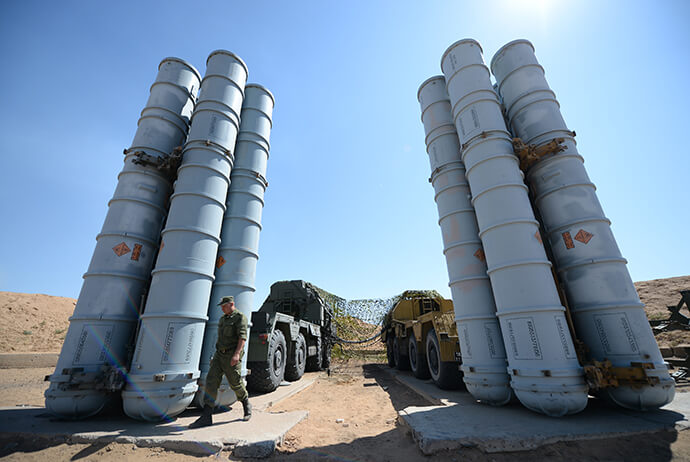
Un soldat pendant un exercice impliquant les systèmes de missiles sol-air S-300/SA sur le terrain d’entraînement d’Ashuluk, dans la région d’Astrakhan (RIA Novosti / Pavel Lisitsyn)
Contrer le bouclier anti-missile des Etats-Unis et de l’OTAN en Eurasie
Washington érige un nouveau Rideau de fer autour de la Chine, de l’Iran, de la Russie et de leurs alliés au moyen de l’infrastructure de missiles des Etats-Unis et de l’OTAN.
L’objectif du Pentagone est de neutraliser toutes les ripostes défensives de la Russie et des autres puissances eurasiennes à une attaque de missiles balistiques US, qui pourrait inclure une première frappe nucléaire. Washington ne veut pas permettre à la Russie ou à d’autres d’être capables d’une seconde frappe ou, en d’autres termes, ne veut pas permettre à la Russie ou à d’autres d’être en mesure de riposter à une attaque par le Pentagone.
En 2011, il a été rapporté que le vice-Premier ministre Dmitri Rogozine, qui était alors envoyé de Moscou auprès de l’OTAN, se rendrait à Téhéran pour parler du projet de bouclier antimissile de l’OTAN. Divers articles ont été publiés, y compris par le Tehran Times, affirmant que les gouvernements de Russie, d’Iran et de Chine projetaient de créer un bouclier antimissile commun pour contrer les Etats-Unis et l’OTAN. Rogozine, toutefois, a réfuté ces articles. Il a dit que cette défense antimissile était discutée entre le Kremlin et ses alliés militaires dans le cadre de l’Organisation du traité de sécurité collective (OTSC).
L’idée de coopération dans la défense entre la Chine, l’Iran et la Russie, contre le bouclier antimissile de l’OTAN est restée d’actualité depuis 2011. Dès lors, l’Iran s’est rapproché pour devenir un observateur dans l’OTSC, comme l’Afghanistan et la Serbie. Beijing, Moscou et Téhéran se sont rapprochés aussi en raison de problèmes comme la Syrie, l’Euro-Maïdan et le pivot vers l’Asie du Pentagone. L’appel de Hossein Dehghan à une approche collective par la Chine, l’Inde, l’Iran et la Russie contre le bouclier antimissile et l’expansion de l’OTAN, couplé aux annonces faites à la CMSI sur des pourparlers militaires tripartites entre la Chine, l’Iran et la Russie, vont aussi dans ce sens.
Les systèmes de défense aérienne russes S-300 et S-400 sont en cours de déploiement dans toute l’Eurasie, depuis l’Arménie et la Biélorussie jusqu’au Kamchatka, dans le cadre d’une contre-manœuvre au nouveau Rideau de fer. Ces systèmes de défense aérienne rendent beaucoup plus difficiles les objectifs de Washington de neutraliser toute possibilité de réaction ou de seconde frappe.
Même les responsables de l’OTAN et le Pentagone, qui se sont référés aux S-300 comme le système SA-20, l’admettent. « Nous l’avons étudié nous sommes formés pour le contrer depuis des années. Nous n’en avons pas peur, mais nous respectons le S-300 pour ce qu’il est: un système de missiles très mobile, précis et mortel », a écrit le colonel de l’US Air Force Clint Hinote pour le Conseil des relations étrangères basé à Washington.
Bien qu’il y ait eu des spéculations sur le fait que la vente des systèmes S-300 à l’Iran serait le point de départ d’un pactole provenant de Téhéran dû aux ventes internationales d’armes, résultat des négociations de Lausanne, et que Moscou cherche à avoir un avantage concurrentiel dans la réouverture du marché iranien, en réalité la situation et les motivations sont très différentes. Même si Téhéran achète différentes quantités de matériel militaire à la Russie et à d’autres sources étrangères, il a une politique d’autosuffisance militaire et fabrique principalement ses propres armes. Toute une série de matériel militaire – allant des chars d’assaut, missiles, avions de combat, détecteurs de radar, fusils et drones, hélicoptères, torpilles, obus de mortier, navires de guerre et sous-marins – est fabriqué à l’intérieur de l’Iran. L’armée iranienne soutient même que leur système de défense aérienne Bavar-373 est plus ou moins l’équivalent du S-300.
La livraison par Moscou du paquet de S-300 à Téhéran est plus qu’une simple affaire commerciale. Elle est destinée à sceller la coopération militaire russo-iranienne et à renforcer la coopération eurasienne contre l’encerclement du bouclier anti-missiles de Washington. C’est un pas de plus dans la création d’un réseau de défense aérienne eurasienne contre la menace que font peser les missiles des Etats-Unis et de l’OTAN sur des pays qui osent ne pas s’agenouiller devant Washington.
Par Mahdi Darius Nazemroaya – 23 avril 2015
Mahdi Darius Nazemroaya est sociologue, un auteur primé et un analyste géopolitique.
Article original : http://rt.com/op-edge/252469-moscow-conference-international-security-nato/
Traduit de l’anglais par Diane Gilliard
URL de cet article : http://arretsurinfo.ch/une-coalition-sino-russo-iranienne-opposee-a-lotan-debute-t-elle-a-moscou/



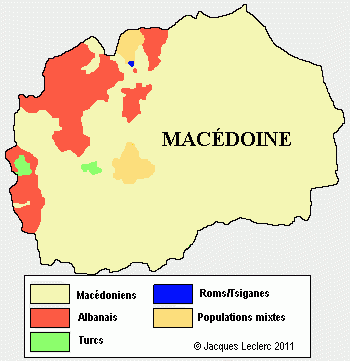 Soros, Nuland e la loro felice compagnia stanno cercando in ogni modo di mettere a ferro e fuoco la Repubblica di Macedonia. I loro burattini all’ interno del territorio macedone, ovvero l’attuale leader dell’ opposizione nonchè presidente del partito social democratico Zoran Zaev, insieme al vecchio presidente macedone Branko Cervenkovski, stanno però fallendo una mossa dopo l’altra. Non è servito a nulla comprare giornali locali, fare centinaia di siti internet uniti ad una propaganda pressante sui siti web, non è servito neppure possedere le televisioni “24 Vesti” o “Telma”, il popolo Macedone è ben informato e sta eroicamente resistendo, tenendo bene a mente i fatti ucraini di piazza Majdan. Nonostante abbia un PIL di poco più di 10 miliardi di dollari, nulla se paragonato ad esempio al denaro gestito dai grandi fondi d’investimento internazionali come i 4000 miliardi di Blackrock, l’attuale presidente Gruevski sta lottando con onestà e coraggio per evitare lo scenario peggiore, resistendo ad ogni tipo di attacco, come ad esempio l’accusa di aver spiato 20000 macedoni, in realtà operazione orchestrata dalla CIA come ha ammesso in un incontro privato, segretamente ripreso, proprio Zoran Zaev. I motivi per cui la Macedonia è sotto attacco sono: il ruolo di anello debole dei paesi balcanici per la costruzione del gasdotto Turkish stream – Balkan stream e oltretutto la pace nei balcani favorirebbe la messa in atto della “nuova via della seta cinese” collegando commercialmente il porto greco del Pireo all’ Ungheria, dunque al cuore dell europa attraverso Macedonia e Serbia.
Soros, Nuland e la loro felice compagnia stanno cercando in ogni modo di mettere a ferro e fuoco la Repubblica di Macedonia. I loro burattini all’ interno del territorio macedone, ovvero l’attuale leader dell’ opposizione nonchè presidente del partito social democratico Zoran Zaev, insieme al vecchio presidente macedone Branko Cervenkovski, stanno però fallendo una mossa dopo l’altra. Non è servito a nulla comprare giornali locali, fare centinaia di siti internet uniti ad una propaganda pressante sui siti web, non è servito neppure possedere le televisioni “24 Vesti” o “Telma”, il popolo Macedone è ben informato e sta eroicamente resistendo, tenendo bene a mente i fatti ucraini di piazza Majdan. Nonostante abbia un PIL di poco più di 10 miliardi di dollari, nulla se paragonato ad esempio al denaro gestito dai grandi fondi d’investimento internazionali come i 4000 miliardi di Blackrock, l’attuale presidente Gruevski sta lottando con onestà e coraggio per evitare lo scenario peggiore, resistendo ad ogni tipo di attacco, come ad esempio l’accusa di aver spiato 20000 macedoni, in realtà operazione orchestrata dalla CIA come ha ammesso in un incontro privato, segretamente ripreso, proprio Zoran Zaev. I motivi per cui la Macedonia è sotto attacco sono: il ruolo di anello debole dei paesi balcanici per la costruzione del gasdotto Turkish stream – Balkan stream e oltretutto la pace nei balcani favorirebbe la messa in atto della “nuova via della seta cinese” collegando commercialmente il porto greco del Pireo all’ Ungheria, dunque al cuore dell europa attraverso Macedonia e Serbia.
 del.icio.us
del.icio.us
 Digg
Digg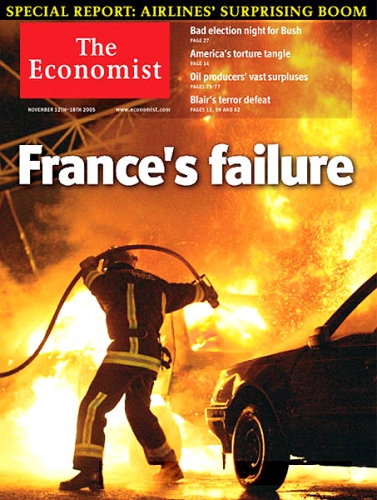
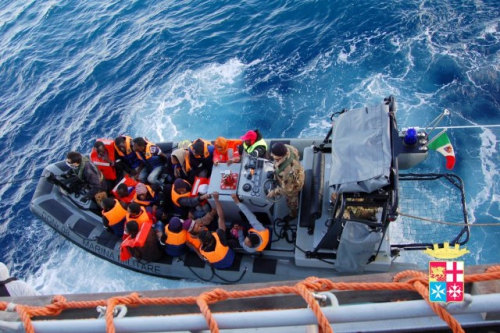
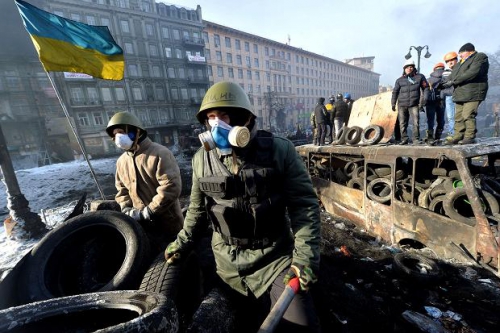
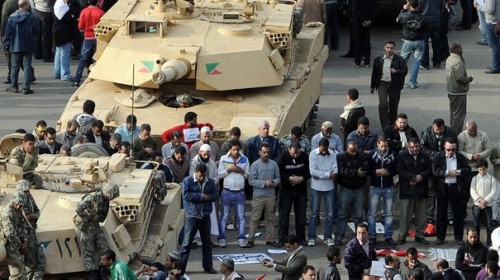
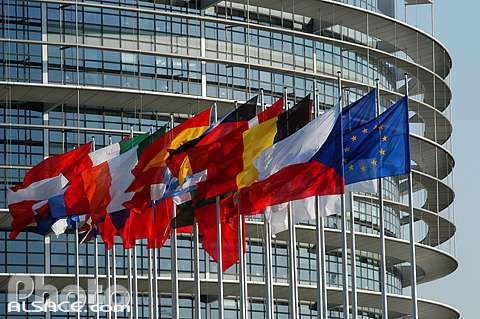
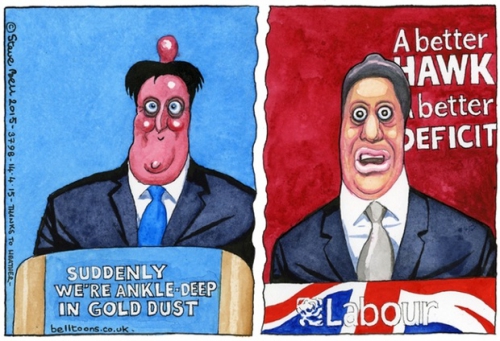
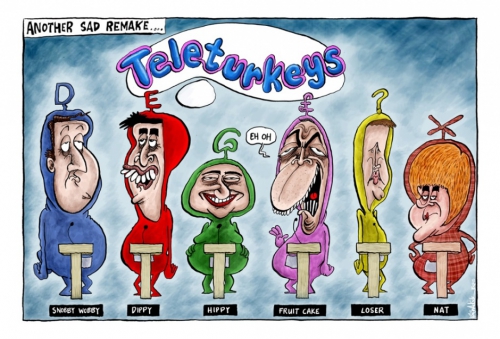
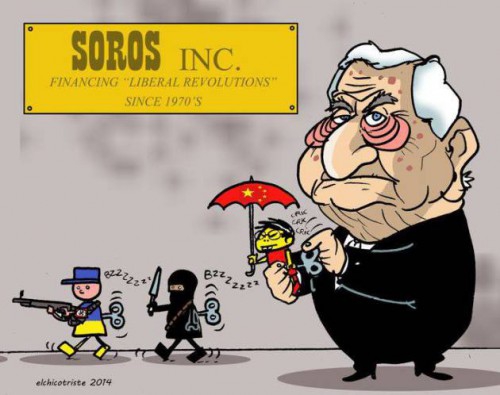
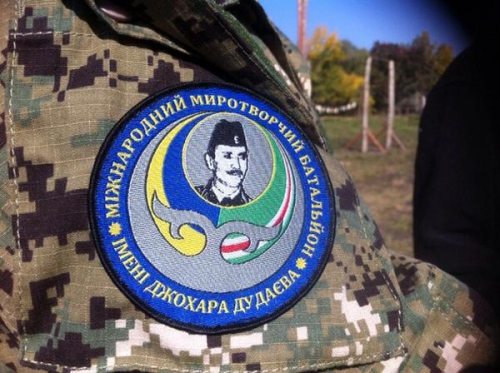
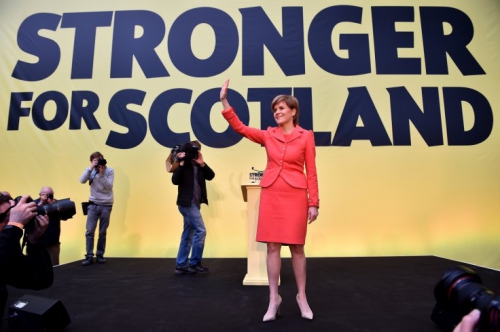

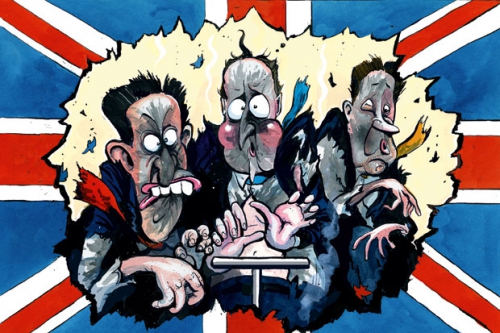

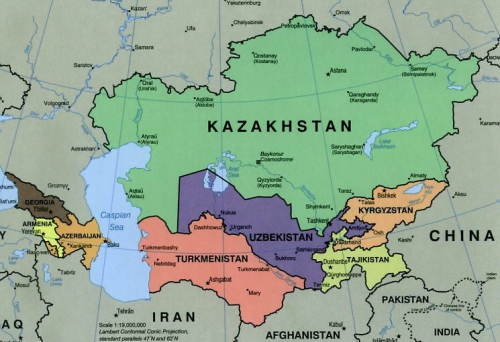
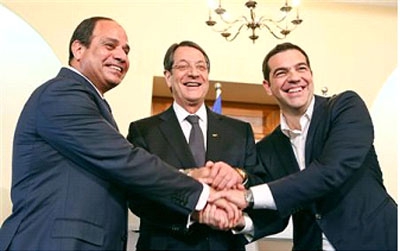
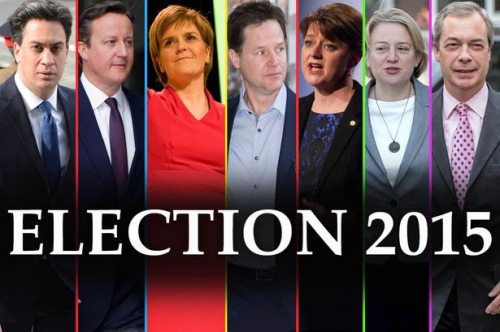
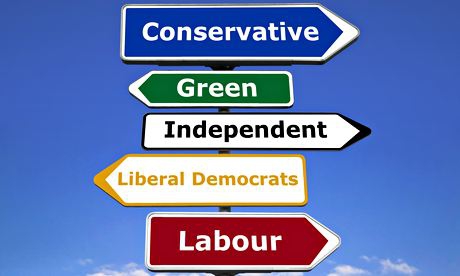 Il plastronne d’ailleurs d’autant moins qu’il a promis, d’ici 2017, un référendum sur la sortie de l’Angleterre du magma européen. Tiendra-t-il ses promesses ? On murmure que certains politiciens persisteraient à honorer cette obscène habitude… Mais là, il lui faudra compter avec les voix de Nigel Farage. Et celles des nationalistes écossais. Et, surtout, avec les menaces de la City qui menace de se délocaliser – tel Renault délocalisant une vulgaire usine Logan en Roumanie- ses activités dans ce no man’s land allant du Liechtenstein aux Îles Caïman tout en passant par Singapour.
Il plastronne d’ailleurs d’autant moins qu’il a promis, d’ici 2017, un référendum sur la sortie de l’Angleterre du magma européen. Tiendra-t-il ses promesses ? On murmure que certains politiciens persisteraient à honorer cette obscène habitude… Mais là, il lui faudra compter avec les voix de Nigel Farage. Et celles des nationalistes écossais. Et, surtout, avec les menaces de la City qui menace de se délocaliser – tel Renault délocalisant une vulgaire usine Logan en Roumanie- ses activités dans ce no man’s land allant du Liechtenstein aux Îles Caïman tout en passant par Singapour.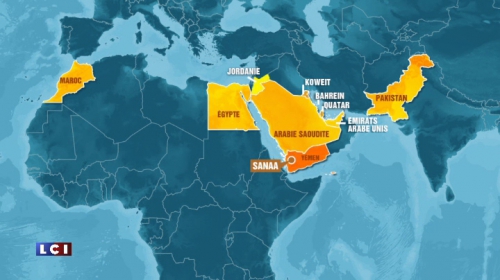
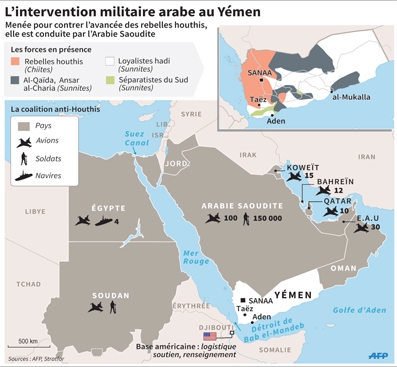


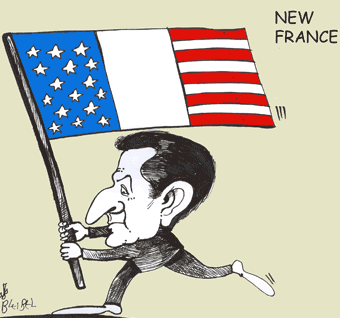 Les prises de position non hostiles à la Russie de certains leaders politiques francais ne peuvent cependant modifier l'ADN de la grande majorité de la droite française d'aujourd'hui. Tendance qui va voir la tenue d'une primaire 100% endogène en 2016, sans aucun parti ou tendance ni souverainiste, ni gaulliste.
Les prises de position non hostiles à la Russie de certains leaders politiques francais ne peuvent cependant modifier l'ADN de la grande majorité de la droite française d'aujourd'hui. Tendance qui va voir la tenue d'une primaire 100% endogène en 2016, sans aucun parti ou tendance ni souverainiste, ni gaulliste.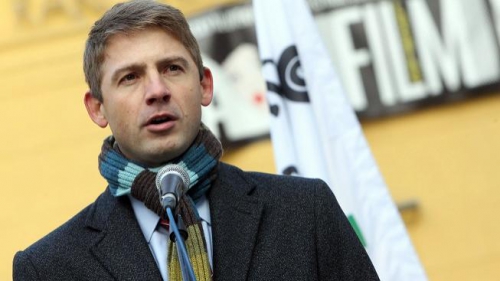



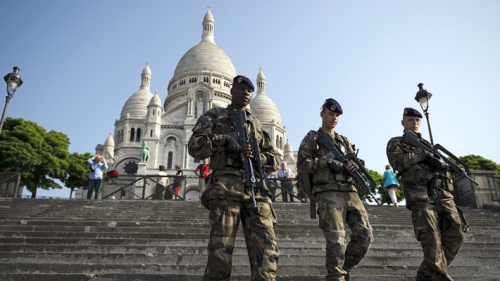

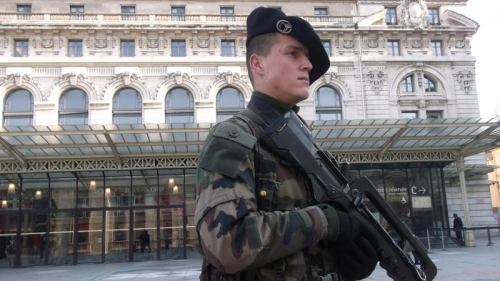
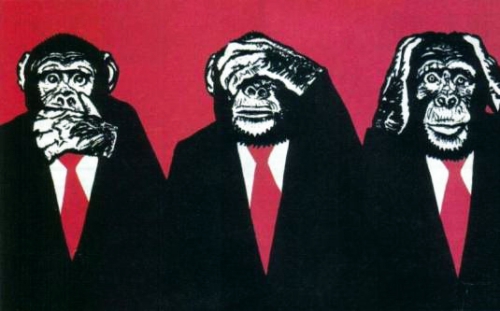
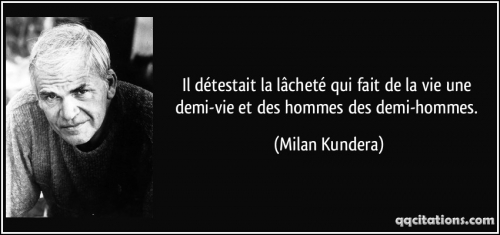

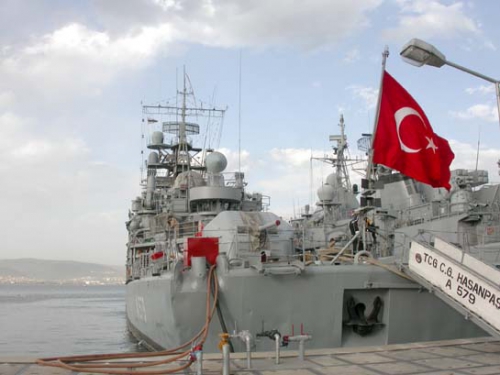


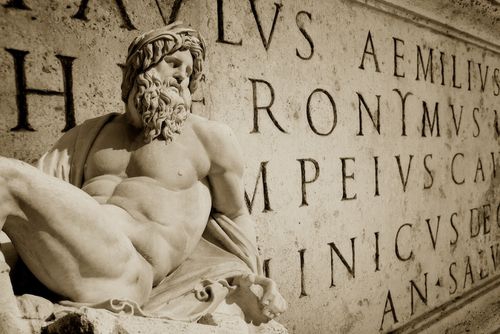
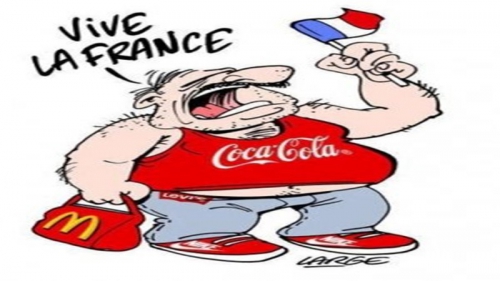
 Pour compléter le tableau, en restant dans la même ligne idéologique, l'on voit également l'affermissement des intérêts américains dans la gouvernance française. En 1981, la French American Foundation créé le programme Young Leader, financé par AIG, Lazard et Footprint consultants. Sorte de version moderne, plus neutre, moins marquée et connue dans la société que la franc-maçonnerie. Aujourd'hui, il comprend plus de 400 dirigeants issus de la haute fonction publique, du monde de l'entreprise, des médias, de la recherche et même de l'armée. Chaque année 20 français et américains sont sélectionnés. En 2014, Alain Juppé, lui même ancien Young leader, a organisé le séminaire à Bordeaux pour la promotion 2014 avec des anciens comme le directeur général d'Alcatel Lucent Michel Combes, par exemple.
Pour compléter le tableau, en restant dans la même ligne idéologique, l'on voit également l'affermissement des intérêts américains dans la gouvernance française. En 1981, la French American Foundation créé le programme Young Leader, financé par AIG, Lazard et Footprint consultants. Sorte de version moderne, plus neutre, moins marquée et connue dans la société que la franc-maçonnerie. Aujourd'hui, il comprend plus de 400 dirigeants issus de la haute fonction publique, du monde de l'entreprise, des médias, de la recherche et même de l'armée. Chaque année 20 français et américains sont sélectionnés. En 2014, Alain Juppé, lui même ancien Young leader, a organisé le séminaire à Bordeaux pour la promotion 2014 avec des anciens comme le directeur général d'Alcatel Lucent Michel Combes, par exemple.
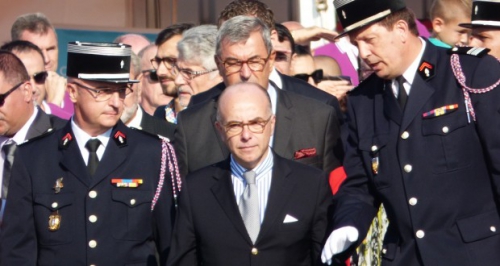
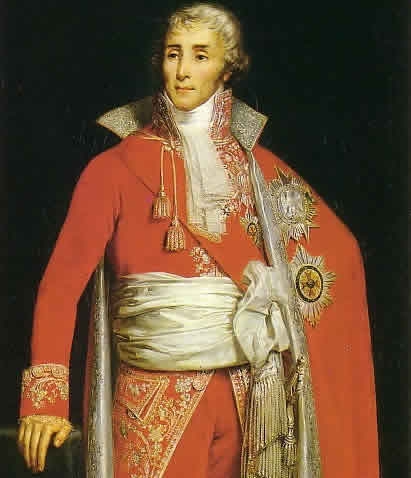 Pour Fouché, pas de bonne police et de régime stable sans une connaissance approfondie de la société permettant de renseigner l’État sur les atteintes sécuritaires à ses intérêts. Mais pour le ministre de la police de Napoléon Bonaparte, de telles pratiques n’entrent pas en contradiction avec l’idéal démocratique, au contraire : « Il ne faut pas croire qu’une police établie par ces vues puisse inspirer des alarmes à la liberté individuelle, au contraire, elle lui donnerait une nouvelle garantie et une puissance plus pure et plus sûre d’elle-même. » La surveillance administrative du pays devient une des attributions du gouvernement et sera au cœur des attributions de l’État moderne ; une surveillance et un contrôle de l’État qui seront les futurs outils des régimes totalitaires du XXe siècle.
Pour Fouché, pas de bonne police et de régime stable sans une connaissance approfondie de la société permettant de renseigner l’État sur les atteintes sécuritaires à ses intérêts. Mais pour le ministre de la police de Napoléon Bonaparte, de telles pratiques n’entrent pas en contradiction avec l’idéal démocratique, au contraire : « Il ne faut pas croire qu’une police établie par ces vues puisse inspirer des alarmes à la liberté individuelle, au contraire, elle lui donnerait une nouvelle garantie et une puissance plus pure et plus sûre d’elle-même. » La surveillance administrative du pays devient une des attributions du gouvernement et sera au cœur des attributions de l’État moderne ; une surveillance et un contrôle de l’État qui seront les futurs outils des régimes totalitaires du XXe siècle. À Charleville-Mézières, une collégienne de 15 ans se voit interdire l’accès au lycée tant qu’elle ne porte pas… une jupe plus courte. Sa jupe est, en effet, jugée trop longue par les autorités scolaires et trop « provocante » du point de vue du signe de son appartenance à une religion. On comprend qu’il ne s’agit pas du bouddhisme mais de l’islam. Il va falloir être pédagogue parce qu’il ne faudrait sans doute pas non plus que sa jupe soit… trop courte.
À Charleville-Mézières, une collégienne de 15 ans se voit interdire l’accès au lycée tant qu’elle ne porte pas… une jupe plus courte. Sa jupe est, en effet, jugée trop longue par les autorités scolaires et trop « provocante » du point de vue du signe de son appartenance à une religion. On comprend qu’il ne s’agit pas du bouddhisme mais de l’islam. Il va falloir être pédagogue parce qu’il ne faudrait sans doute pas non plus que sa jupe soit… trop courte. Quelle est la logique du communautarisme ? C’est celle du développement séparé (apartheid, au sens précis du terme). Ne faisons pas de mauvais procès aux communautaristes : c’est, pour beaucoup de ceux-ci, un développement séparé sans suprémacisme blanc. À part cela, leur logique, c’est celle de l’endogamie. C’est la logique du repli sur soi, sur « sa » communauté d’origine. C’est un individualisme à l’échelle du groupe. L’appartenance devient dépendance absolue au groupe et à ses habitus, fussent-ils aussi inadmissibles sur notre sol que l’excision.
Quelle est la logique du communautarisme ? C’est celle du développement séparé (apartheid, au sens précis du terme). Ne faisons pas de mauvais procès aux communautaristes : c’est, pour beaucoup de ceux-ci, un développement séparé sans suprémacisme blanc. À part cela, leur logique, c’est celle de l’endogamie. C’est la logique du repli sur soi, sur « sa » communauté d’origine. C’est un individualisme à l’échelle du groupe. L’appartenance devient dépendance absolue au groupe et à ses habitus, fussent-ils aussi inadmissibles sur notre sol que l’excision.
